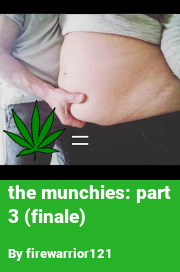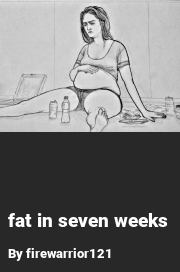Chapter 1
NOTHING LEFT TO LOSE OR GAINSaffily stood under the starlight at the crest of the rise, looking out over a horizon too dark to tell land from sky, and I stood on the grassy slope below, gazing up at her. The last bite of her meal she held close to her chest, absently, as though she were caught in a deep chain of aimless wondering. From time to time, a sigh of wind would blow against the length of her dress, which was no more than a repurposed bedsheet, so that it wrapped against her body, and a mildly protruding stomach which could be discerned amidst her waist. This told me that she had, once again, eaten every last morsel of food available to her, and more. This was just one of her freedoms in the refuge of this quiet, monastic Sanctuary within which she was hidden away from the world.
From upon these heights, one could see a dim silhouette of the Citadel, out in the very dark and far distance; that city from which she had been banished, thrown away from the Imperial Core itself for the rest of her natural life. A living pariah discarded by the State Apparatus into the tombs of cultural amnesia. Exiled to the Isle of Clay where her skin would wither and stick to her bones like paper.
Or so the state officials believed, and so slept easy at night, knowing their secrets were safe from the people.
I had not been there, with the resistance squadron, when they had intercepted Saffily's escort, killed the captors, and taken her away under cover of night, then faked her death by making it appear as if reactionary vigilantes had murdered her. I am not a hero. All I am, is a servant of the revolution. The party leaders have asked of me this one thing; to be Saffily's shadow. I serve her, I watch her, for the rest of her life I am to attend to her, hidden from the eyes of the empire until the day the revolutionaries take power, or else the day she perishes. History will write itself at its own pace of unfolding. I cannot tell you which way it will go. I am but a servant to the people - too uneducated to lead, too conscious to be a bystander. Now I am a servant to her; the martyr.
Martyrdom suited Saffily, insofar as she could not afford to live. I say this because, in truth, she was beautiful. So much so that too many people would regard her with suspicion if she were to continue as a revolutionary figure in public. How could a young woman of aristocratic birth possibly desire to defect from her class and throw her life away to the purpose of elevating the masses - and furthermore, why would someone so attractive waste their beautiful time on others? The superstitious cynicism of tired, hungry, overworked millions would have tarnished anything she tried to accomplish with questions such as "Why should we believe you?" rather than "We trust in you".
Saffily stood as tall as the bravery of her deeds stood from the floor of cowardice. Her height was just a little greater than that of an average man, and whenever I stood before her, our eyes would meet at an almost mutual level. There was no difference to be felt in superiority, nor inferiority, to thus set the tone of our interactions. Her hair was a golden bronze of un-embellished light hue, and it possessed the same uniform smoothness that her skin must have felt to the touch. Her eyes were of such a blue that they seemed to be filled with water from the ocean, and were shaped in a gentle almond tilt as if it was sadness she felt when she listened to the ambient hum of all the world and its millions of destitute voices. The small upwards lift of concern between her eyebrows accentuated this effect. Perhaps she would have looked a generally miserable person except for the regality in her face, the supreme lack of tension in her muscles - that relaxed, butterlike ease of her expression which countered the sadness of her features and transposed her face into the appearance of someone who exudes satisfied wisdom. Her nose was thin, strong, and somewhat angular, and her soft cheeks were punctuated by dimples on one side of a smile that, because of a strong chin, gave her at times a slightly masculine grin. She walked in a smooth, gentle glide through the Sanctuary each day with a small upwards curl in the corners of her soft mauve lips resembling the shape of a curly bracket you see written on parchment from time to time.
It was almost three seasons that Saffily had been hiding in the Sanctuary before the abundance of food available to her day after day began to show proper effect owed to cause.
Now, having been birthed into the highest altitudes of aristocracy, Saffily was appropriately raised into a young woman of as tall and lean a stature as possible. One of the aristocracy's self-congratulatory quirks is to pretend as if its gross opulence is not one of slovenly greed, and they accomplish this pretence by imposing a strict, though unspoken body-standard upon members of their society. The last time a revolutionary leader successfully exposed the ruling elite, they had done so by reminding the masses that the rich were the very image of overfed, rotund, over-corpulent hogs too fat to stand on their own feet whilst everyone else was anxious of starving by morning. This cultural event had occurred seventy years ago, and it had been sixty-nine years since that particular revolutionary figure had been found and executed for slander. Thereafter, the elites have sought to pretend they are the very opposite of "gluttonous". It must have struck a nerve too close to the beating heart of the empire's inner machinations.
Hence the slender geometry of Saffily's statuesque self; she was wrought to thinness by the expectations of her upbringing. It was exactly this thinness which brought it all the more starkly to attention the day she was seen traversing the walkways through the lilypad ponds bearing the introductory consequences of overindulgence upon her hips, puckering slightly the area around her navel.
Never did she make even a single gesture of conscious modesty about it. Perhaps it is due to the fact that there was nary a gaze to perceive her. A sanctuary such as this one is populated by monastic clerks, ascetics, renunciates, scorcerors, mages, hermits, perhaps the odd vagabond who prefers not to disclose their history - none of whom give anything more than a cursory glance at their brother or sister cohabitors as they pass by one another, and thus prefer to remain in solitude.
By comparison - as for myself - when one is close at hand to a person every last consecutive day, one develops an observational eye for particular things: habits, sudden changes to those habits, oddities, the creation of said oddities and habits. Thus, I observed many changes in Saffily, whether that be how she, all of a sudden one morning, disliked having her long blonde hair in anything but a single plait; or took to wearing a simple white headband to keep her hair above her brow; or how she developed an affinity to this or that food across this or that particular span of days; or grew sick of a certain spot in the sanctuary, as large as the place was; or how she felt near or far, spiritually; high or low, emotionally.
Even as her midsection continued to return to a swollen appearance whenever she emerged from the mess hall after taking her meals, she seemed to regard her body's subtle anatomical changes with quizzical, almost scientific episodes of indifference - whenever this or that little bit of flesh appeared, or a body part became more pronounced, she would observe this in passive acceptance, without appearing the least bit disappointed or pleased. She never said these quiet parts out loud; but before long I could read her like a weather vane. I could tell the ways in which she noticed, and pretended not to notice. Everything that happened was witnessed by her with that apathetic amusement - that pure expressionless acceptance - of one so resigned to death that nothing could go wrong, for the worst has already happened. She was bound to remain here for the rest of her life.
Mayhaps her indifference was also a sign of ambiguous depressive spells that would overtake her from time to time. Saffily's attitude in these moments was as if to say "I'll likely continue to soften, but so what? I am here for life, if I am not found out and put to death first. There is nothing left to lose - or gain."
I remember seeing her smirk as she spoke these exact words, or a phrase approximating them, one morning as she sat aimlessly about in the lower courtyard of the sanctuary valley where one of the mountain's streams glided smoothly by, and she was twisting a small flower between her fingers and smelling it so frequently that she must have been trying to convince herself that it wasn't going to disappear like a dream. Milkleafe smoke plumed around her face from a pipe which sat nestled in the valley of her thighs, a habit she had recently picked up. The phrase "Nothing left to lose or gain" pleased Saffily whenever she heard herself say it to me. She became so fond of the phrase that she turned it into an expression she would often repeat, sometimes out loud, sometimes to herself when she thought I wasn't in earshot.
The Sanctuary in which Saffily was sentenced to spend her days is a secret paradise that still exists to this day (the location of which I cannot disclose, in adherence with the Protectors' Creed). It is a pocket of deeply green, leafy, abundantly foliaged valley hidden behind the illusion of a torrential waterfall projected across the valley's only entrance by a Master Dreaming Mage named Xavindi, who sits cross-legged at the topmost seat of the valley all day and all night with his eyes closed in a perpetual state of Dream-trance. A few monastic clerks volunteer their time to feed Xavindi once each day from a large stock of food and drink sourced by a small portal in the chambers below the monastery. The chambers have existed since the monastery was built, but the portal by which supplies are delivered was created when the Sanctuary was first formed and the monastery repurposed. That underground portal connects to an undisclosed location, from which nameless agents send through deliveries of supplies every second day. Nobody is allowed there but for the clerks, who manage the Sanctuary's logistical matters. Only they know what the agent on the other side receives in return for their delivery of goods. Such a deal must have been made far in excess of what the Sanctuary truly needs, for the portal delivers so much food that much of it ends up being sent to waste in a compost pile near the lower terrace of the valley, which is then used to provide nutrients for a communal garden attended to by many residents with understanding of organic life.
The Sanctuary has no name. This is a feature of a place which does not want to be found. All that matters is that Saffily was given a life of concealed anonymity there and I as her assistant-protector, and servant of the revolution via her heroic acts, was thus also granted indefinite refuge.
One day curiosity got the better of me and I overstepped my line. I asked Saffily what made her choose to throw her life away, to spill her family's secrets, to defect from her position in the ruling class and agitate the masses of people who could sense something was wrong but didn't know what it was or why it was happening.
Now I did not ask her this with words, for the Protectors' Creed forbids one from ever speaking with a client. Instead, I had asked with my eyes, imploring, opening myself to listening when she had strayed near the topic one day during a time when she had been speaking her thoughts out loud.
It was a blue-skied day, and the morning mists were only just drifting away down the valley stream as she emerged from the mess hall after receiving her breakfast. She bore the same disproportionate roundness in her stomach as she walked. once again having eaten not just what she required to be sated, but every last excess of what she was allotted on paper; a habit she had fallen into simply because nobody would pay enough attention to notice, and if they did, would not care enough to recommend that she stop, for there was such an abundance here.
So she thought out loud, using me as a sort of diary. When she perceived the question that I held out to her within my gaze, her eyes flitted away into the darkness of her mind's corner.
Before long, she turned calmly back to me, and said, 'I was like any other child raised in that kind of wealth. I had not a clue what it was.' She spoke flippantly, offering a faint shrug now and again. 'If you have it, you use it. It was like water, or the air we breathe. It was merely around me. One day I noticed my mother acting very strange and quiet about something obviously important. She was following my father's lead in the affair. It may sound silly, but I felt bad about that. I began noticing that silence and the strangeness more and more often, every time certain personages would visit, or that we would travel somewhere important. My parents always put me in the lead. It is as if I was some badge, representing them. I didn't know for sure at the time, but later on I knew, that my intuition as a child was right; I was being groomed. That intuition grew like a root grows. Deeper. Stronger. More comprehensive in its reach. Does that make sense? I studied books in private, by the way - and in all my learning of history, not once was I ever made to feel like I sat on the right side of history, or the future. Wars. Massacres. Endless regimes with no more point to them than to enrich one or a few men. Once I looked at myself, at my family, once I recognised the types of personages I was being groomed to share power relations with; that was the moment I think I must have figured it out. I was thirteen. My parents had not told me anything so far except for appealing, sweet falsehoods. But I couldn't love my life anymore. I rebelled in my own stupid ways. They laughed. They interpreted it as "typical teenage insurrection". I wasn't taken seriously. They told their social circle it was a phase that would pass. But they were anxious, secretly. I could tell. I was their only child. By the age of sixteen or seventeen I decided to let them believe it was a phase. I pretended to accept my life as an elite. In truth I was incredibly tense, angry, and sad. But at least it was safe. Until my twenties, when I could not do it for much longer. My spiritual health was in decline. I had not the energy left to maintain the facade. The arm with which I held my mask over my face was cramping, so to speak. One day I decided enough was enough. I could do it no more. I exposed what I knew from the inside, and ultimately defected to the only cause I knew was worth believing in.'
Safely's gaze was distant. Now she turned to look at me. Her watery blue eyes held their focus with such incisive exactitude upon me that I felt seen straight through like a man-shaped pane of glass. When she took her gaze away, she did not speak again for a matter of weeks, and seemed almost to keep a greater distance from me than usual. I obliged, relinquishing that distance. Perhaps she felt she had spoken too much; the residue of her aristocratic cultural education had re-emerged in a moment of psychological distress. I made no further effort to draw words from her, as my Creed forbade me from all conversation in the first place.
In the meantime, I kept the palm of my left hand on the pommel of my blade, as always, and lifted my eyes to the heavens, scanning the tops of the valley for any hostile threats - a daily routine. This event was as unlikely as a fish in the sky, but as essential of due vigilance as the guarding of all the world's gold.
If not for the aristocracy's obsessive expectations of the bodily form, it would have been a wonder Saffily was so slender, and not five times the size and weight of a normal person. It was only now, hidden for the rest of her life within the Sanctuary's secrecy, that her form was threatening to develop curvatures heretofore unknown. Her appetite was in excess of itself, perhaps because it had been born a beast, chained, and was now at long last unleashed.
You see, Saffily was the daughter of one of the world's wealthiest bankers, Porran Intinax, who was from a family of even wealthier bankers: the "Intinax Monetary Guild". Ever since the dust and debris of the War of Realms had settled, and the surviving powers had adjusted their asses into their seats of rule over whatever scraps remained of the world, the Ossolic Empire had decided that the best way to prevent "another war" was to launch a series of quick, inhumane wars, one in rapid succession after the other, never stopping until all their surrounding neighbours were brought to their knees, beaten into submission or subjugated economically. But then one day, all of a sudden, nobody wanted to "go to war for nothing anymore", as the Ninth Emperor of the Essolian Empire had so unsubtly complained to a close adviser who had been one of Saffily's great forebears. If anyone was to "bear a sword or fire-spell these days", they wanted something in return. Usually this was money.
And thus had begun the Intinax Monetary Guild's surge to power, hundreds of years before Saffily was yet to be born into such a world where unjust opulence, moral subversion, political-economic intrigue, and life-threatening levels of secrecy were implied in even the simplest of smiles of the wealthy. Thousands upon thousands of soldiers were paid from a treasury of blood money harvested by a war machine so large, so momentous, tentacled so far out across the world, that nothing has been able to stop it for centuries since it established dominance.
I have seen the Citadel itself, once in my life. In the revolutionary party, my duties had taken me to various parts of the world, home and abroad; Gorreia's expanse of tropical archipelago as far as the eye can stretch; the mist-drenched tundras of Tolonti; the skin-hardening heat of the Arodish desert and her Great Inland Sea; the fractured provinces of the Layendan dominion; the coasts of the chilly island of Zilaf; and at home as well, in the very heart of the Ossilic Empire...
Not three years ago I embarked with a small group of five party members who travelled to the Citadel disguised as "state officials", and spent several nights securing weapons deals, manpower, and attending a general meeting in a forgotten sector of the sewers to discuss party policy in light of recent events involving a massacre of workers who had revolted at a large grain mill fifty leagues south.
Let me tell you that the Citadel itself is the largest collection of residential, religious, alchemical, administrative, royal, and industrial buildings in all the world so far. I would be proud to call it my nation's central city, if it were not the very pulsing heart of murder, plunder and oppression.
Never before, nor since, has physical labour joined forces with magical labour in such a massive extent of mobilisation than what you would witness if you were to visit the Citadel. The wealth of the Ossilic nation has known no end - nor have the heights of architecture in the Citadel's construction. Its towers rise like intricate anthills of limestone, reinforced clay and iron so colossal that if you walk their crowning promenades, you may traverse the very clouds themselves. The Imperial Crest, as it is called, is a central tower that rises so tall that it punctures the sky's layer of cloud and vanishes beyond its secretive heavens in blankets of mist. Purportedly it is very cold up there. I have not been so high as that. I think I will ask Saffily one day, if she obliges. After all, If she can permit herself to feed her appetite, I may be permitted to feed my curiosity. But I dream. To do so would be to run against my creed.
Fantasy
Apocalypse/Quarantine
Feeding/Stuffing
Paradise/Holiday/Luxury
Princess/Prince
Sexual acts/Love making
Helpless
Indulgent
Romantic
Female
Straight
Weight gain
Other/None
First person
10 chapters, created 1 year
, updated 1 year
6
1
4105










Comments